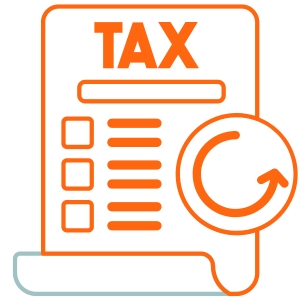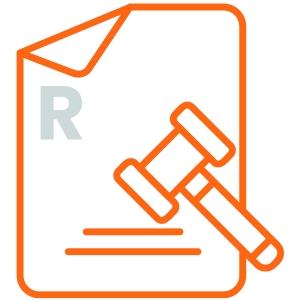
Going through a divorce is undeniably one of life’s most turbulent and emotionally taxing experiences. It’s a complex and often drawn-out process, and feeling swamped is entirely expected. Staying organised is a key strategy to maintain stability and boost your odds of securing a just resolution. Employ this straightforward divorce checklist to remain focused and in control.
Key Takeaways
- Complexity and Emotional Impact: Divorce is depicted as a legally complex and emotionally challenging process, emphasizing the importance of staying organized and seeking professional legal advice.
- Financial Management: Effective financial management is crucial during a divorce, with a specific focus on alimony, pension division, and understanding tax implications. Proactive financial planning can ease the transition.
- Support Arrangements: The article highlights the importance of clear arrangements regarding child support and spousal maintenance, stressing the legal system’s role in ensuring fairness and protecting the interests of children.
What is Divorce?
Divorce is the formal ending of a marriage through legal processes. If you’re in a civil marriage, your divorce will be processed under the Divorce Act. Marriages under African Customary Law can be dissolved using either civil or customary law. This means your marriage is ended under the Divorce Act, although specific conditions might apply.
Who Qualifies for a Divorce?
To qualify for a divorce under the Divorce Act, you must have a valid reason. Eligible grounds for divorce include:
- An “irretrievable breakdown” of the marriage, evidenced by you and your partner being unable to live together for at least one year before filing for divorce, with no prospects of reconciliation.
- Infidelity by one partner.
- One partner being declared a habitual criminal and serving a prison sentence.
- If your partner has been institutionalised in a mental health facility for at least two years with no expected recovery, as assessed by medical professionals.
- Your partner has been in a coma for at least six months with doctors believing there is no chance of recovery.
Sometimes, taking out a personal loan can help you manage immediate financial needs during a divorce. Understand the pros and cons of personal loans and how to choose the best one for your situation. Ensure you get the funds you need without overburdening your finances.

Divorce Procedure in South Africa
Here is the breakdown of the divorce procedure in South Africa:
| Step | Description |
|---|---|
| 1. Consultation | Book a consultation with your divorce attorney to gather details about your life and determine if your spouse will contest the divorce. |
| 2. Drafting Summons | Have your divorce summons drafted by specialist divorce attorneys to prevent future complications. |
| 3. Issuance of Summons | The court issues the summons on behalf of the Plaintiff, detailing the identities of both parties, marriage details, and Plaintiff’s demands regarding wealth division, debt, maintenance, and child care arrangements. |
| 4. Service of Summons | The summons is served to the spouse (the Defendant) by the Sheriff. |
| 5. Defendant’s Response | The Defendant responds with a plea to the divorce summons. |
| 6. Counterclaim | The Defendant may issue a counterclaim detailing their demands from the divorce decree. |
| 7. Plaintiff’s Reply | The Plaintiff replies to the Defendant’s plea with a document known as the Plaintiff’s plea to the Defendant’s counterclaim. |
| 8. Request for Trial Date | Once pleadings conclude, the Plaintiff requests a trial date from the court. The waiting time can vary depending on the court’s location and type. |
| 9. Discovery Phase | Both parties must disclose all documents they plan to use in the trial to each other. |
| 10. Summoning Institutions | If necessary, the divorce lawyer might need to summon institutions to obtain essential documents. |
| 11. Securing Evidence | In cases where assets might be concealed or documents removed, the divorce attorney takes additional steps to secure this evidence. |
| 12. Trial | If no settlement is reached, the case proceeds to trial where the court determines the distribution of assets. |
| 13. Importance of Documentation | Accurate documentation and legal guidance are essential to avoid delays and additional costs. |
Post-divorce life often involves juggling multiple debt payments. Find out how to efficiently manage your debt payments to avoid falling behind. With the right strategies, you can keep your financial obligations in check and avoid additional stress.

Divorce Checklist on Your Finances
Going through a divorce can be emotionally and financially challenging. To ensure you come through this transition as smoothly as possible, it’s important to have a detailed understanding and control over your finances. Here’s a checklist to guide you in managing your financial situation during a divorce:

1. Review What’s on Paper
The first step to a divorce checklist is understanding your legal partnership is subject to the law as well as upon divorce. Firstly Here you will find answers upon filing for divorce. Presently define the partnership in terms of cohabitation as well as if separated – define your domestic partnership contract which you have made before filing for divorce.

2. Partner Alimony and Maintenance
Upon divorce, you may have to pay your partner some form of spousal maintenance. This is the case when an individual has earned a higher income than their partner. Though common law marriage or domestic partnership is not a legally binding relationship in South Africa. More information on the Divorce Act of 70 of 1979.

3. Divided Pension
Divorce will have an individual entitled to half of their partner’s pension that was procured during their partnership. Therefore the first step upon divorce would be to address your pension fund holders upon having any legal partnership changes. The pension fund holders divide such funds and certain agreements may be made regarding the division of pension upon divorce. View a complete overview of such possibilities here.

3. Contact your Financial Home Loan Lender or Your Landlord
Owning a home alongside your ex-partner upon divorce, you are both often jointly responsible for the home loan. Clarify if both parties will remain in the same home or be released from having several liability over the home loan. Usually, the home loan lender will be involved. Talk to your bank or insurance first before deciding. Does the bank or insurer agree on such arrangements before canceling any joint or several liabilities?
Note: If your home has increased or decreased in value, both partners share the profit or loss. Renting? Check your rental contract agreement upon divorce, as these contracts should have pre-defined rules and arrangements regarding the lease and its termination.

4. Divorce and Your SARS Tax Return
Divorce has certain ramifications on your tax return. Separating will affect your tax payments. Be smart upon paying maintenance via SARS. Payment of maintenance funds can not be claimed as a tax deduction. However, the receiver of funds is exempt from normal taxation under the Income Tax Act.

5. Claiming Allowances/Benefits?
Upon separation, specific allowances and benefits may change or you may be entitled to certain benefits and allowances. Notify tax authorities upon separation. Children will greatly affect the differences in specific allowances whether a parent holds joint or individual custody over a child/children. For more information on co-parenting and joint custody.

6. Create a New Budget
The result of a divorce will considerably change your financial stance on housing requirements, namely doubling housing costs as well as paying maintenance. You may need to seek out opportunities to work overtime to account for such changes. It is wise to review all your income and expenses.

7. Shared Accounts
Review all accounts and balances to date as well as notify your bank. Establishing the closure of accounts as well as placement of the new account holder. Similarly the same applies to automatic payments and bills.

8. Joint Insurance Policies
Review insurance policies to determine the changes. In certain cases with life insurance, they may have more complicated policies, be sure to check with your insurance provider upon amending.

9. Shared Assets and Debts
- The division of assets and debts depends on agreements made before marriage.
- Marriage in a community of property is defined as where everything is jointly owned.
- A prenuptial agreement states which belongings of yours are together and which are personal during your marriage and after its termination.
For more information when married in a community of property, see tips for distribution.

10. Record Your Agreements Before Your Divorce
Children if under the age of 18, require a lawyer to file changes made in court between the two parties and the necessary arrangements that have been made. Speak to your lawyer for a more in-depth overview of amending these changes, agreements, and dissolving such as agreements made prior such as cohabitation arrangements. Finalizing your divorce ultimately is the judge’s decision.

11. Child Support
You have a maintenance obligation for your children until the age of 18. A judge will determine the amounts paid regarding child support between spouses. For more information on child support.

12. Parenting and Custody Agreement
Having children together will involve an agreement between two parents. Arrangements range from allowances regarding school fees, tax, the child’s budget, and residence, with whom a primary parent holds custody over the child. The same applies to child welfare in all agreements. If you need help advice on such matters, reach out to your lawyer.

13. Do you Receive a Grant, Retirement Annuity, Social Assistance, or Other Benefits?
If you separate, your entitlement to such benefits under certain conditions as social grants and other benefits will change. Notify all agencies involved as soon as possible upon separation. You may then be eligible for assistance or a grant and entitled to request maintenance from your previous partner.
Conclusion
Navigating the financial complexities of divorce requires careful preparation and attention to detail. It is essential to meticulously organise your financial documents and understand your current financial status. Seeking advice from financial experts and divorce attorneys can also ensure that your interests are protected throughout the process. By staying proactive and informed, you can mitigate the financial strain of divorce and set the stage for a secure financial future.
Frequently Asked Questions
Gather all relevant financial documents, including bank statements, credit card statements, tax returns, payslips, investment accounts, property deeds, and any documents related to debts. These will provide a clear picture of your financial situation and assets, which is crucial for a fair settlement.
To protect your credit, close any joint accounts, monitor your credit report regularly for any unauthorised activity, and ensure that all bills are paid on time. It’s advisable to open accounts in your own name to begin building your personal credit history.
Yes, hiring a financial advisor can be very beneficial during a divorce, especially to help you understand the long-term impacts of proposed divorce settlements. An advisor can provide crucial guidance on financial planning and asset division that aligns with your future goals.
While it’s possible to handle your finances on your own, it can be challenging, particularly if the asset situation is complex. Seeking professional advice ensures that you do not overlook any important details that could affect your financial stability post-divorce.
If you suspect that your spouse is hiding assets, notify your attorney immediately. They can employ forensic accountants to investigate and uncover any hidden assets. This step is vital to ensure a fair division of property and assets during the divorce proceedings.



